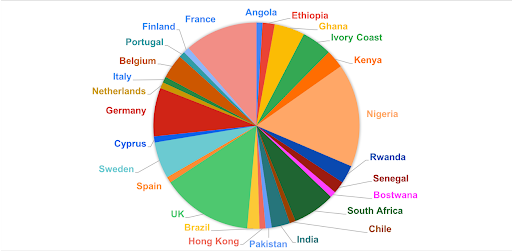Online workshop: Advancing Air Quality and Carbon science in Africa
Many regions in Africa suffer from high concentrations of pollutants such as particulate matter and this problem is expected to worsen as Africa's economy and population is growing fast. The continent also contains some of the world's fastest urbanizing regions. Yet, to date there are still many open questions about the emissions and the transport and transformation of pollutants.
In this context, ACOM, in collaboration with NOAA and the Laboratoire d'Aérologie in France organized an online 3-day workshop on Advancing Air Quality and Carbon science in Africa, which attracted more than 200 registered participants from more than 25 countries.
The overall goal for the workshop was to assess existing measurements, datasets, and modelling frameworks to tackle the challenge of defining science-based pollution mitigation pathways. The venue brought together different teams who all focus on this common objective, set the base for stronger collaborations, inform of existing activities and assess future needs and directions.
Discussions on the first day were focused on assessing existing observation datasets that can be used to quantify and better understand the sources and fate of pollution with data sets ranging from satellite measurements and field campaigns to local low-cost sensors and surface monitoring networks. The main theme of the second day was on the quantification of emissions from a wide variety of sources including anthropogenic, biomass burning and biogenic activities.
On the last day we discussed the closed links between meteorology and pollution and elaborated on different modelling frameworks. Finishing discussions looked at ways to build and develop a monitoring analysis and forecasting system as a Pan African cooperative initiative with international partners.
The workshop organizers would like to thank all speakers and workshop participants for stimulating discussions and a successful workshop and look forward to follow-up activities emerging from this workshop. Presentations are available on the workshop website.

Figure 1. Non-US countries represented at the workshop.